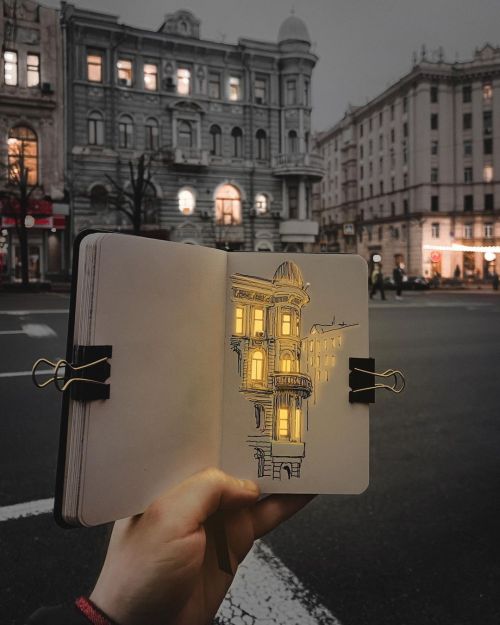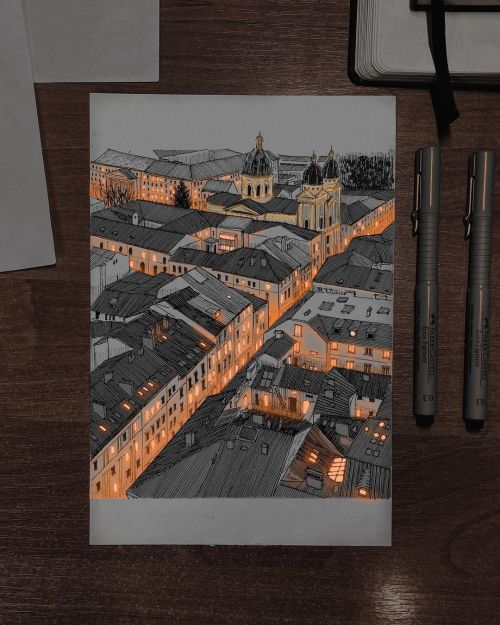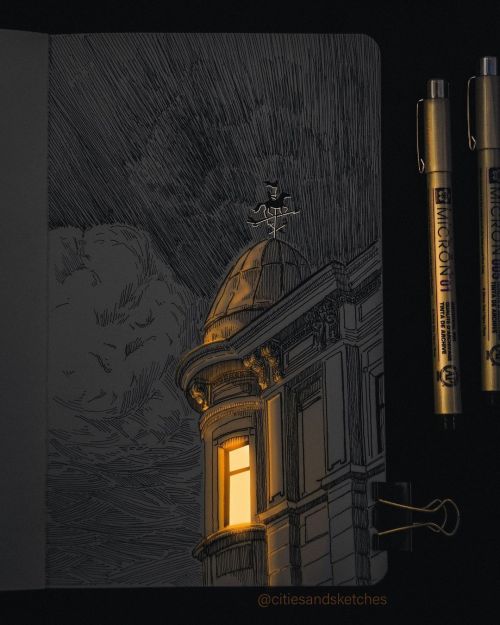You've Seen Turtle Lock, But Now Prepare For The True Measure Of A Turtle!
You've seen turtle lock, but now prepare for the true measure of a turtle!



More Posts from Thecaffiend and Others
I don’t know if it’s just me but the second someone tells me they hit their kids or want to hit their future kids I immediately never want to talk to them again.
I love how the search function on this site is absolute garbage. I can look up a post word for word and I will NEVER find it







Works by Jade Merien
This artist on Instagram // Society6
The best advice really is to just write. Write badly - purple prose, stilted conversations, rambling descriptions. Don't delete it, pass go, take your $200, save all your garbage in a big folder. Look at how much you've made - it doesn't matter if it isn't perfect, isn't polished, it was practice. Every time you write you learn a little more, and find another piece of your voice.










Cities and Sketches on Instagram
like there’s this whole thing in this book about how your brain grows stronger and healthier by practicing responding to stress in healthy ways,
because if a stressor is predictable and you feel a sense of control over it, you habituate and stop reacting to it,
but if it’s random and unpredictable you have the opposite response and become sensitized, so your reaction actually gets more and more extreme.
(if you hear a loud noise at predictable intervals you’ll soon stop noticing or reacting, but if you hear it at random intervals you’ll become sensitive to it and anxious.)
so one way to help people who have adverse reactions to reminders of trauma is to give them control over how they’re reminded of the trauma,
because it helps the brain practice responding to stress in a safe way so you can habituate to the stress response.
which is why if someone tags something for a trigger and you still choose to look,
it’s actually an act of healthy resistance against your reaction to that trigger (because it teaches your brain to habituate),
but encountering something triggering in a random and unpredictable way actually increases your stress response and makes you more sensitive to the trigger.
so people who are against trigger warnings because “you have to learn to cope” are actually taking away your tools for learning to cope,
because encountering stressors in a way that further strips you of control over your trauma is never, ever helpful.
it’s a lot of stuff i kind of knew but integrated and explained with more context and science
why are french people rude?
Ah well, the safest explanation when an entire country’s people are stereotyped as rude is that they have their own culture with different criteria for politeness than the ones you are used to. It’s probably easier for Americans to forget this than for the rest of the world, because they consume less foreign media than the rest of us (from literature in translation to foreign films) and are less exposed to aspects of foreign cultures that could inform them about different norms of politeness (online interactions happen in their own language and follow their own (anglo) social codes.) With this insular worldview it’s easy to take it for granted that American good manners are universal. They are not!
A very common gripe against American tourists in Paris is that they talk so loudly in public spaces, which is definitely rude here but I assume that in the US, people just have a different threshold for what constitutes ‘loud’ (I wonder if it is due to being used to having more space than Europeans). I also remember a discussion I had with one of my translation professors about the American concept of ‘active listening’ and how negatively it is perceived in France. It may be that in the US it is polite to make ‘listening noises’ at regular intervals while someone is speaking to you, ‘uh huh’, ‘right’, ‘yeah’, ‘really?’, and that you would perceive someone who just stands there silently as disinterested or thinking about something else. In France it is more polite to shut up and listen (with the occasional nod or ‘mmh’) and it’s rather seen as annoying and rude to make a bunch of useless noise while someone is speaking.
There are of course countless examples like that. The infamous rude waiters in Parisian cafés probably seem a lot more rude and cold to people who have a different food culture… People from other cultures might consider a waiter terrible at his job if he doesn’t frequently check on them to make sure they don’t wait for anything, but the idea that a meal is a pleasant experience rather than just a way to feed yourself (esp when eating out) means we like having time to chat and just enjoy our table for a while, so we don’t mind as much waiting to order or for the next course. French people would typically hate if an overzealous waiter took the initiative to bring the note once we’re done with our meal so we don’t have to wait for it, as it would be interpreted as “you’re done, now get out of my restaurant.”
The level of formality required to be seen as polite is quite high in France, which might contribute to French people being seen as rude by people with a more casual culture. To continue with waiters, even in casual cafés they will address clients with the formal you and conversely, and won’t pretend to be your friend (the fact that we don’t have the American tip culture also means they don’t feel the need to ingratiate themselves to you.) I remember being alarmed when a waitress in New York introduced herself and asked how I was doing. “She’s giving me her first name? What… am I supposed to with it? Use it?” It gave me some insight on why Americans might consider French waiters rude or sullen! It might also be more accepted outside of France to customise your dish—my brother worked as a waiter and often had to say “That won’t be possible” about alterations to a dish that he knew wouldn’t fly with the chef, to foreign tourists who were stunned and angry to hear that, and probably brought home a negative opinion of French waiters. In France where the sentiment in most restaurants is more “respect the chef’s skill” than “the customer is king”, people are more likely to be apologetic if they ask for alterations (beyond basic stuff) as you can quickly be seen as rude, even by the people you are eating with.
And I remember reading on a website for learning English that the polite answer to “How are you?” is “I’m fine, thank you!” because it’s rude to burden someone you aren’t close to with your problems. In my corner of the French countryside the polite thing to do is to complain about some minor trouble, because saying everything is going great is perceived negatively, as boasting, and also as a standoffish reply that kind of shuts down the conversation, while grumbling about some problem everyone can relate to will keep it going. (French people love grumbling as a positive bonding activity!)
Basically, before you settle on the conclusion that people from a different place are collectively rude, consider that if you travel there and scrupulously follow your own culture’s social code of good manners, you might be completely unaware that you are being perceived as obnoxious, rude or unfriendly yourself simply because your behaviour clashes with what is expected by locals.

c a s u a l
I don’t remember where this story was from but it was about how the writers older brother died when he was young and years later had a son who, had never met the brother had the same mannerisms as him. Ok I think I remember the key words were “my son drinks from the water fountain like my brother” or something
-
 chewyou-uplike-bubblegum liked this · 2 weeks ago
chewyou-uplike-bubblegum liked this · 2 weeks ago -
 goldberrie liked this · 3 weeks ago
goldberrie liked this · 3 weeks ago -
 kalonkakon13 reblogged this · 3 weeks ago
kalonkakon13 reblogged this · 3 weeks ago -
 latenighthazymusings reblogged this · 3 weeks ago
latenighthazymusings reblogged this · 3 weeks ago -
 latenighthazymusings liked this · 3 weeks ago
latenighthazymusings liked this · 3 weeks ago -
 frequentlyproblematic reblogged this · 3 weeks ago
frequentlyproblematic reblogged this · 3 weeks ago -
 rederiswrites liked this · 4 weeks ago
rederiswrites liked this · 4 weeks ago -
 jensownzoo reblogged this · 4 weeks ago
jensownzoo reblogged this · 4 weeks ago -
 jensownzoo liked this · 4 weeks ago
jensownzoo liked this · 4 weeks ago -
 endrega23 reblogged this · 4 weeks ago
endrega23 reblogged this · 4 weeks ago -
 endrega23 liked this · 4 weeks ago
endrega23 liked this · 4 weeks ago -
 roseclaw reblogged this · 4 weeks ago
roseclaw reblogged this · 4 weeks ago -
 misseon liked this · 1 month ago
misseon liked this · 1 month ago -
 solemnmoonwalkinghistorian reblogged this · 1 month ago
solemnmoonwalkinghistorian reblogged this · 1 month ago -
 solemnmoonwalkinghistorian liked this · 1 month ago
solemnmoonwalkinghistorian liked this · 1 month ago -
 frequentlyproblematic liked this · 1 month ago
frequentlyproblematic liked this · 1 month ago -
 canticleofcanticlesforleibowitz liked this · 1 month ago
canticleofcanticlesforleibowitz liked this · 1 month ago -
 in-sheeps-clothing reblogged this · 1 month ago
in-sheeps-clothing reblogged this · 1 month ago -
 mortifiedandawesome reblogged this · 1 month ago
mortifiedandawesome reblogged this · 1 month ago -
 ravensbeanie reblogged this · 1 month ago
ravensbeanie reblogged this · 1 month ago -
 lndigosarchive liked this · 1 month ago
lndigosarchive liked this · 1 month ago -
 brooklyn-rhapsody liked this · 1 month ago
brooklyn-rhapsody liked this · 1 month ago -
 skittlez2932 reblogged this · 1 month ago
skittlez2932 reblogged this · 1 month ago -
 rynarth liked this · 1 month ago
rynarth liked this · 1 month ago -
 gasolinegoblin reblogged this · 1 month ago
gasolinegoblin reblogged this · 1 month ago -
 lauconflora reblogged this · 1 month ago
lauconflora reblogged this · 1 month ago -
 purrluto reblogged this · 1 month ago
purrluto reblogged this · 1 month ago -
 purrluto liked this · 1 month ago
purrluto liked this · 1 month ago -
 honey-bunchesofgoats reblogged this · 1 month ago
honey-bunchesofgoats reblogged this · 1 month ago -
 papanden reblogged this · 1 month ago
papanden reblogged this · 1 month ago -
 ask-blue-link liked this · 1 month ago
ask-blue-link liked this · 1 month ago -
 arsenicandnewlace reblogged this · 1 month ago
arsenicandnewlace reblogged this · 1 month ago -
 whichdeer reblogged this · 1 month ago
whichdeer reblogged this · 1 month ago -
 theplaysickkitten reblogged this · 1 month ago
theplaysickkitten reblogged this · 1 month ago -
 terf-destroyer-inator-5000 liked this · 1 month ago
terf-destroyer-inator-5000 liked this · 1 month ago -
 lunar-court reblogged this · 1 month ago
lunar-court reblogged this · 1 month ago -
 lunar-court liked this · 1 month ago
lunar-court liked this · 1 month ago -
 rewcana liked this · 1 month ago
rewcana liked this · 1 month ago -
 blazingstar liked this · 1 month ago
blazingstar liked this · 1 month ago -
 shrimpemojis reblogged this · 1 month ago
shrimpemojis reblogged this · 1 month ago -
 solsunflora liked this · 1 month ago
solsunflora liked this · 1 month ago -
 jsmvm liked this · 1 month ago
jsmvm liked this · 1 month ago -
 gardensandghosts reblogged this · 1 month ago
gardensandghosts reblogged this · 1 month ago -
 corvidsarecool reblogged this · 1 month ago
corvidsarecool reblogged this · 1 month ago -
 lovevapour reblogged this · 1 month ago
lovevapour reblogged this · 1 month ago -
 lovevapour liked this · 1 month ago
lovevapour liked this · 1 month ago -
 endless-tsundoku reblogged this · 1 month ago
endless-tsundoku reblogged this · 1 month ago -
 beg457 reblogged this · 1 month ago
beg457 reblogged this · 1 month ago -
 beg457 liked this · 1 month ago
beg457 liked this · 1 month ago